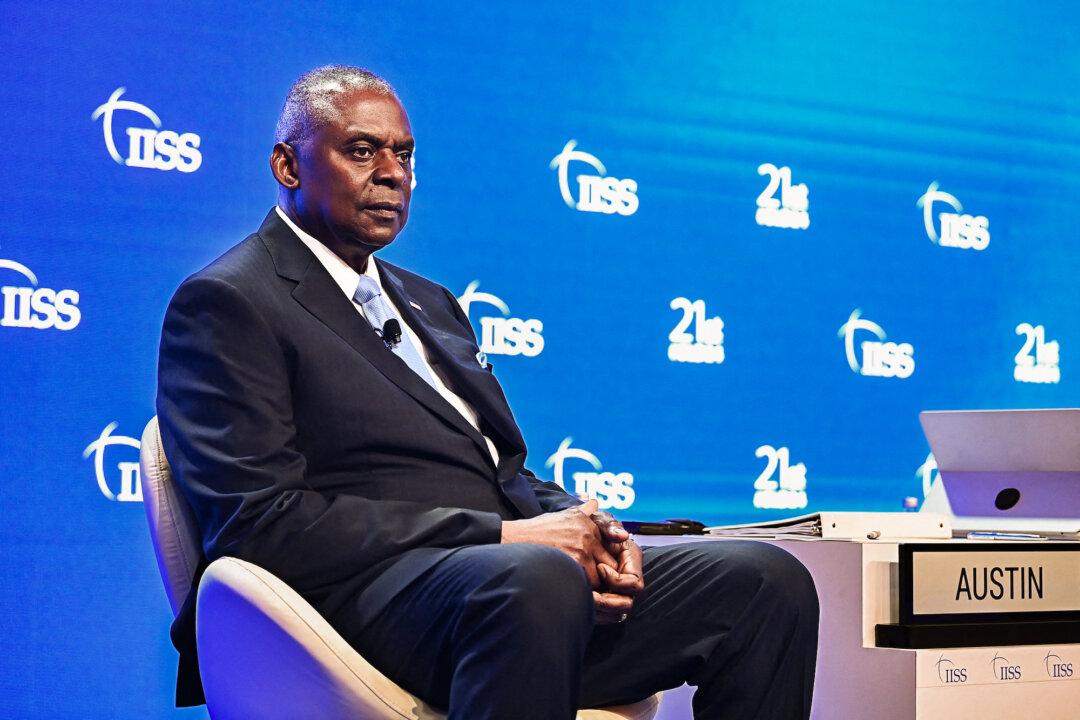A war with China is neither imminent nor unavoidable, U.S. Secretary of Defense Lloyd Austin said on June 1 as he fielded questions at a defense forum in Singapore.
Mr. Austin’s comments came a day after he had a conversation with Chinese Defense Minister Dong Jun. That was the first in-person meeting between the top defense officials since Beijing shut off contact between the U.S. and Chinese militaries in retaliation for the high-profile trip to Taiwan by then-House Speaker Nancy Pelosi (D-Calif.).





